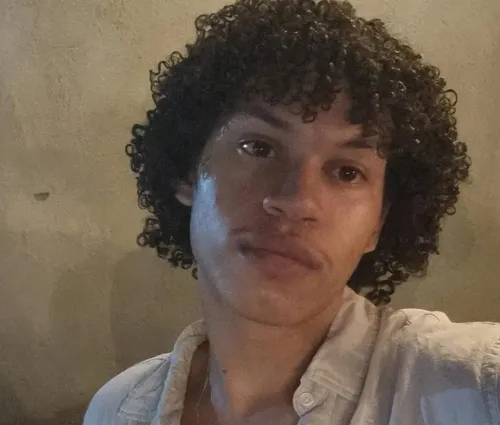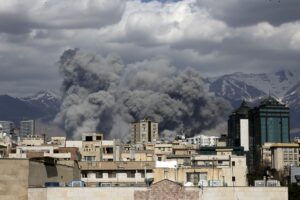
Medical student Jailson de Oliveira Alves prepared for six months to move to Argentina after being accepted into the Medicine course at the University of Mar de Plata (UNMDP). A native of Salvador, he boarded a flight in Salvador (BA) in the early hours of February 1st, with a stopover in São Paulo and destination to Buenos Aires, the day before the start of the school year.
To avoid setbacks, the student took a printed college application, but it wasn’t enough. When he arrived at Jorge Newbery airport, the migration service approached him with a series of questions.
The authorities wanted to know what he was doing in the country, if he had a credit card and how much money he had taken. An employee called him into a small room and asked him to sit down and handed him a printed form that he had to sign after reading.
“The last line said that my entry had been rejected. I was going to photograph the document, but they didn’t allow it”, the student tells Brazil in fact. Alves boarded the flight in Salvador at 5:40 am and this situation at the airport unfolded around 4:30 pm. Exhausted, he didn’t even try to argue. After signing the form, airport employees boarded the Brazilian student on a flight back to São Paulo, without even guaranteeing a connection to Salvador (BA).
:: ‘We were discriminated against for fighting discrimination’, says employee of an organization closed by Milei ::
“It was a huge frustration, it felt like a nightmare. I never knew of a Brazilian who had not managed to enter Argentina. I wondered what I had done wrong, but I was within the law. There was nothing wrong with me, they just didn’t want to let me in.”
When university classes began, on February 2nd, Jailson spent the day trying to get assistance at the Argentine Consulate in São Paulo (SP). “He couldn’t be seen, they only made an appointment for the next day but as I was paying for a hotel, it wasn’t worth staying, I left it to be resolved in Bahia”.
The Argentine consulate in Salvador sent Jailson by email a list of documents that he would have to present to guarantee a student visa, and thus enter Argentina. For the student visa, the consulate requires a passport with a minimum validity of six months, a guarantee of economic means for maintenance and accommodation in Argentina and a certificate of the student’s criminal record.
:: Milei government closes institute against discrimination, xenophobia and racism: ‘It’s useless’ ::
The consulate also requires registration in the Renure (Single National Register of Foreign Applicants) of the educational institution, as well as the student’s electronic registration carried out by the institution. “The study institution must register the student’s registration electronically with the National Directorate of Migrations of Argentina (Application for Authorization to Enter the Country – Preload of Electronic Data, in free translation)”, says the Consulate document.
“Not even the university was used to these documents, because it was never necessary. The student entered as a tourist and had 90 days to regularize. It would be much easier to resolve this there than to return to Brazil to resolve it since it is something that was never required”, says Alves.
When he spoke to reporters on Wednesday (21), Alves had just sent all the documentation and was awaiting a student visa to enter Argentina. During the month of February, he was able to take his college classes online.
Fear and anxiety
Jailson Alves’ story has been recurrent among foreign students, not just from Brazil, who tried to enter Argentina at the beginning of this year, after the ultra-liberal government of Javier Milei took office. On Wednesday (21), the Brazilian embassy in Argentina released a statement addressed to Brazilians who are going to study in the neighboring country:
“Brazilian citizens interested in studying in Argentina must apply for a student visa at the Argentine embassy or Argentine consular network, prior to traveling to Argentina. The Argentine government’s demand applies to students of all nationalities”, says the text published by the embassy.
“We are hearing many reports from Brazilians, Chileans and Ecuadorians”, says Julia Vilas Boas Viana, coordinator of the migrant sector of the Remediar student union, at the University of La Plata, where she is studying her 3rd year of Medicine. As in Jailson’s report, she points out that the university does not yet have a protocol on how to deal with the new required documentation.
Remediar’s migration sector was created in 2019, when Argentine universities started to require a Spanish certificate and many students had difficulty obtaining documentation and guaranteeing their entry. As it is the first initiative of its kind in the country, it has become a reference and has received many complaints from other universities.
The officialization of the requirement for a student visa to enter the country has generated fear and anxiety among Brazilian students.
“What is coming out now at the embassy, asking for a student visa, creates a lot of insecurity in people. Many students have many doubts, with this information about deportation people were very scared and anxious”, says Viana. “We are far from our family, our culture, our customs and this certainly affects us a lot. Being questioned by a police authority, being taken to a small room and having to answer a series of questions.”
Group messages from students at the University of La Plata / Reproduction
Contacted by the report, Itamaraty stated, in a note, that it became aware of reports of inadmission of Brazilian students in Argentina through the Embassy and Consulate General in Buenos Aires and carried out actions on the matter with local authorities.
“In the contacts established, the Argentine side was reiterated the importance of applying the Agreement on Residency for Nationals of Mercosur State Parties, which provides for measures to facilitate the free movement of people. In response, local authorities indicated the need for students Brazilians enter Argentina using the appropriate visa. The Brazilian government recommends that interested parties seek information from Argentine consular authorities regarding the documents and requirements necessary for entry and stay in the country according to the objectives of the trip”, says the note.
Editing: Rodrigo Durão Coelho

Source: www.brasildefato.com.br

